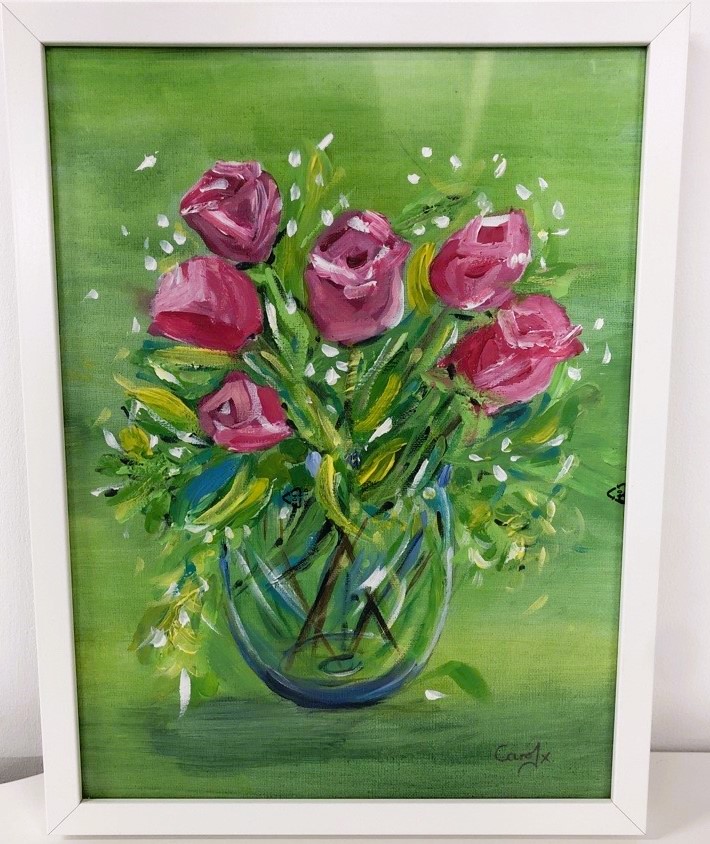Playlist for Life in the Arts
Playlist for Life provides tools and resources that community organisations can use to engage with people living with dementia on a deeper level.
Personally meaningful music can help start conversation and connections that help people to better engage with a range of activities.
How playlists support arts based activities
Liz Wilson volunteers at Dunfermline Abbey. The Abbey is a Playlist for Life Help Point and also runs a CrossReach Heart for Art group, which promotes ‘creativity, self-worth and achievement for people with dementia’.
Liz has linked her Playlist for Life knowledge to the Heart for Art group and created a group playlist with music that is personal to each member of the group.

“Our CrossReach Heart for Art sessions accompanied by our group playlist of personally meaningful music are going well and participants are really enjoying listening and even singing along as they paint! We had a lovely moment this week at the art class when a husband and wife suddenly burst into song and sat singing to each other. I am also finding the playlist a huge help in getting to know everyone who comes along and one lady I worked with happily chatted about memories evoked by nearly all the music we played on Monday. She and I painted and sang together throughout the morning - the music definitely compliments the art activity.”
Liz Wilson, volunteer
Liz uses the music strategically, sharing that by putting songs personalised to group members who need a little extra support at the start of the playlist, she can help those who have difficulties with speech to better communicate and connect with the volunteers.

Music has also helped participants at a Heart for Art group based at St Andrews Church, Carluke. They play a wide range of music during sessions, with participants enjoying musicals and movie themes, classical pieces and one particular gentleman favouring Black Sabbath. With such personalised tastes, they have sometimes used headphones to support members to listen to their own style of music. Although the music played as background for the whole group hasn’t been personalised to each participant, they have already seen benefits.
'"We had a situation where I noticed a participant falling asleep and I decided to change the music to something more lively "Mull of Kintyre". This sparked a sing song and the participant who was sleeping joined in and immediately started painting again."
Maureen Digby, CrossReach Heart for Art Senior Art Coordinator
How art can support musical expression
In Supporting People to Live Well with Dementia: A Guide for Library Services, researcher and author Sarah McNicol shares how ‘Mark Making’ can be used to express emotional responses to music.
“As part of the Where the Arts Belong project, […] artist Tabitha Moses ran mark making activities with care home residents. Mark making is a technique commonly used by artists to express their feelings or emotions about something they have seen or experienced. ‘Marks’ are lines, dots, marks, patterns or textures that can be applied by any materials onto a surface. Whilst not what many people might initially consider this as ‘writing’, mark making can be a way for people with dementia to express and share their emotions and responses. In the mark making activity for care home residents, participants were encouraged to make marks using pastels on paper in response to their reactions to pieces of instrumental music that were played to the group. This meant that participants were encouraged to produce their own artistic response to each piece of music, but there was no pressure on them to either produce an accomplished drawing or to write using letters and words.”
At Playlist for Life we know that not everyone living with dementia will be able to share detailed memories or emotional responses to music but will hopefully get a feeling of familiarity and comfort when listening to music that is personally meaningful. This Mark Making activity could be used to support playlist building activity with people who find verbal communication difficult.





